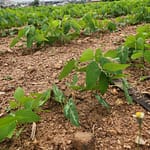The Nigerian Export Promotion Council’s (NEPC) 3rd Annual Conference emphasized Nigeria’s drive to harness non-oil export potential as a cornerstone for national economic growth. Themed “Promoting Non-Oil Export for Rapid National Economic Growth,” the event gathered policymakers and industry leaders in Abuja to strategize on positioning Nigeria in the global trade arena.
At the conference, Vice President Kashim Shettima, represented by Senator Ibrahim Hadejia, Deputy Chief of Staff to the President, highlighted the administration’s commitment to reducing Nigeria’s dependence on oil and gas. He emphasized that “for Nigeria to improve its balance of trade, there is a need to ensure the effective implementation of the country’s trade policy.”
Shettima also explained that “with the trade policy, we intend to substantially increase the contribution of the trade sector to the GDP and increase Nigeria’s share of global trade.”
The Vice President highlighted the growing global trade market, projected to reach $32 trillion by the end of 2024, and urged Nigeria and Africa to seize these economic opportunities. He stated, “Global trade is estimated to reach $32 trillion by the end of 2024. The critical question is how Nigeria and Africa can maximize these huge economic opportunities presented by the exchange of goods and services in the global market.” To achieve this, he emphasized the need for policy reforms, improved market access, and enhanced competitiveness for Nigerian products in international markets.
In her address, NEPC Executive Director/CEO Nonye Ayeni acknowledged the role of strategic collaborations in boosting Nigeria’s non-oil exports. She noted that Nigeria’s non-oil export earnings grew by 6.26 percent in the first half of 2024, reaching 2.7 billion naira. “Under the Renewed Hope Agenda of President Tinubu, significant strides have been made towards diversifying the Nigerian economy away from oil,” Ayeni said. She credited this growth to the administration’s policies and collaborations with key stakeholders, including the Nigeria Customs Service (NCS), the Nigerian Ports Authority (NPA), and the Nigerian Agricultural Quarantine Service (NAQS).
Ayeni also highlighted the NEPC’s flagship initiative, “Operation Double Your Export,” aimed at boosting exports across sectors like agriculture and solid minerals. This initiative, she explained, is not only increasing exports but also creating jobs and fostering sustainable growth. She also emphasized the importance of enhancing production capacity, adhering to global standards to curb export rejections, and adding value to Nigeria’s agricultural products to boost competitiveness.
To streamline export processes, Ayeni outlined efforts to improve logistics, including the establishment of domestic export warehouses and providing export certification for Nigerian businesses. Additionally, the NEPC’s collaboration with the World Trade Organization (WTO) and International Trade Centre (ITC) seeks to address quality control challenges and reduce product rejections.
In line with Shettima’s comments, Ayeni reiterated the significant potential of Nigeria’s human and natural resources to drive economic growth through non-oil exports. By enhancing production capacity, reducing export rejects, and focusing on value addition, Nigeria can unlock these opportunities for a more resilient and diversified economy.












